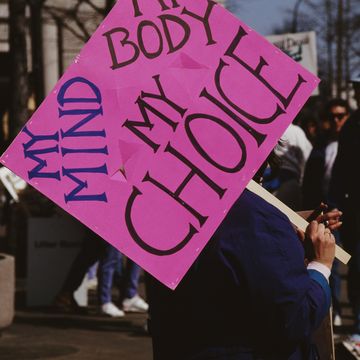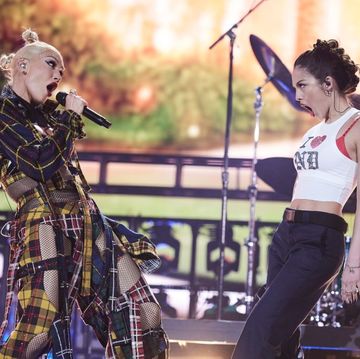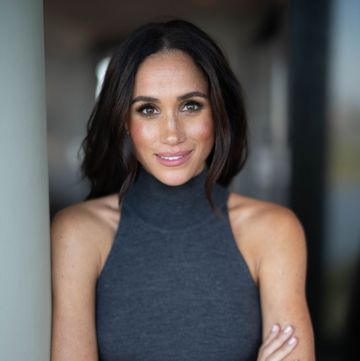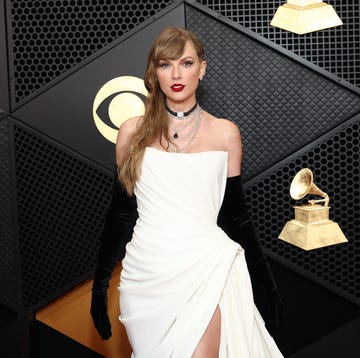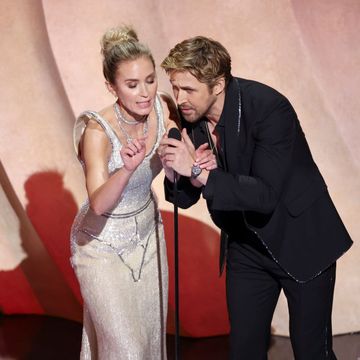On 7th May, Britain will go to the polls in what is being dubbed a generation-defining election.
More than 9 million women failed to vote in the last election, so many of the parties are looking to sway us by highlighting female-focused policies.
'Women are less likely to vote than men and the gender voting gap is widening,’ said deputy Labour leader Harriet Harman earlier this year. ‘We believe that this election will be a watershed for women in this country.’
With the election a matter of weeks away, we break down some of the need to know information so you can make your vote matter.
How to vote
To vote in the election you must be on the electoral register, but the deadline to register has now passed.
You will receive a polling card in the post. Take it to your local polling station on 7 May.
What your party can do for you
Conservative
Party leader and Prime Minister: David Cameron
- Eliminating the deficit
- Cutting taxes by raising basic and higher rate starting points
- Helping people to own their own home
- Improving education
- Holding a referendum on Britain’s EU membership
How they’re appealing to women: Cameron has promoted women to his cabinet during his time as PM but it remains male-dominated. There is more work to be done.
Liberal Democrat
Party leader and Deputy Prime Minister: Nick Clegg
- Balance the budget via cuts and taxes on higher earners
- Increase tax-free allowance to £12,500
- Guarantee education funding from nursery to 19
- Invest £8bn in the NHS with equal care for mental & physical health
- Five new laws to protect nature and fight climate change
How they’re appealing to women: Commitment to shared parental leave and vow to triple statutory paternity leave to 6 weeks if re-elected
Labour
Party leader: Ed Milband
- Cut the deficit every year, no extra borrowing for manifesto commitments
- Give employees the right to a regular contract after 12 weeks of regular work
- Make it illegal for employers to undercut British workers by exploiting migrants
- Extra £2.5bn funding for the NHS
- Cut university tuition fees by £3,000
- Freeze energy bills until 2017 and give energy regulator new powers to cut bills this winter
How they’re appealing to women: Companies with more than 250 workers to publish the “hourly pay gap” between the sexes in their annual report to shame them into ensuring equal pay for women
Green
Party leader: Natalie Bennett
- Publicly funded, publicly provided health service free at the point of use
- End austerity and restore the public sector, creating jobs that pay at least a living wage
- Build 500,000 social rented homes by 2020 and bring empty homes back into use
- Work with other countries to ensure global temperatures do not rise by more than 2C
- Scrap university tuition fees
How they’re appealing to women: Vow to end to tampon tax, 5% taxation on sanitary products
SNP
Party leader: Nicola Sturgeon
- Wants new job-creating powers for Scottish parliament
- Will protect Scotland's NHS budget; cut waiting and introduce a one-stop cancer diagnosis
- Stands by free tuition and commitment to smaller classes
- Backs minimum pricing for alcohol to cut cheap booze
- Has a zero-waste strategy and backs low carbon transport
- Wants independence to "determine our own destiny and build the best future for Scotland"
How they’re appealing to women: Gender targets on public boards, better childcare and the promotion of modern apprenticeships in subjects such as engineering to girls.
UKIP
Party leader: Nigel Farage
- Rapid referendum on Britain’s membership of the European Union
- Control immigration
- Powers for voters to recall MPs
- Extra £3bn a year for the NHS
- No tax on the minimum wage
How they’re appealing to women: A promise to end the Tampon Tax
Watch: The debates
Thursday 27th March: David Cameron Ed Miliband presented by Jeremy Paxman and Kay Burley.
Thursday 2nd April: A debate with seven party leaders moderated by Julie Etchingham.
Thursday 16th April: A debate between opposition party leaders moderated by David Dimbleby.
Thursday 30th April: A BBC 'Question Time' special programme with David Cameron, Ed Miliband and Nick Clegg. Presented by David Dimbleby.
On BBC, ITV, Channel 4 and Sky
Now go forth and vote!

